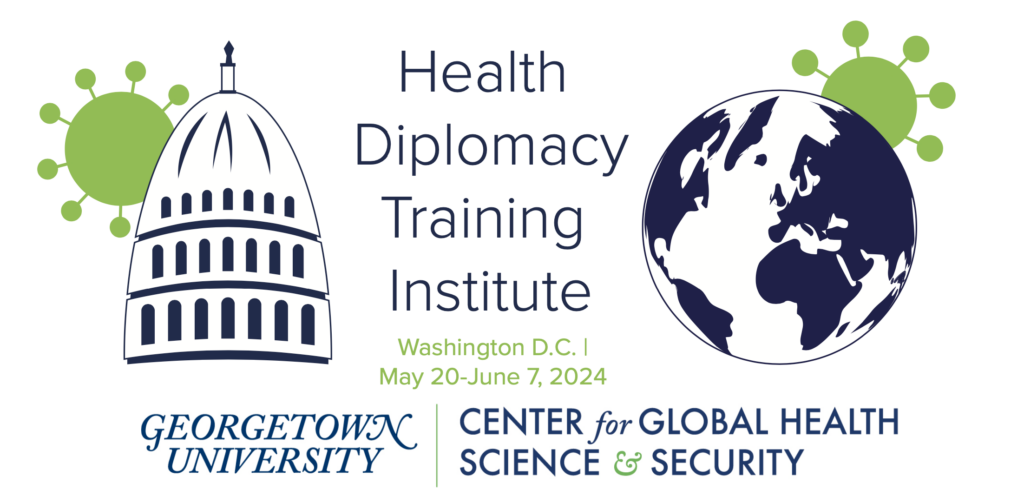Health Diplomacy Training Institute
Thank you for your interest in the Center for Global Health Science & Security, Health Diplomacy Training Institute. We just completed the 2024 institute, and we are grateful to all of the trainers and attendees for helping to make our first year a resounding success! During this intensive three week training initiative, students and professionals from diverse backgrounds took courses in global health diplomacy and security, One Health, and data visualization.

Information on the 2025 Institute will be posted in coming months.


